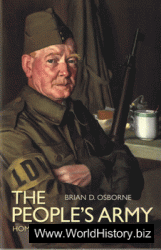Volume II of The Cambridge History of the Cold War examines the developments that made the conflict between the United States and the Soviet Union a long-lasting international system during the 1960s and 1970s. A team of leading scholars explains how the Cold War seemed to stabilize after the Cuban Missile Crisis in 1962 and how this sense of increased stability evolved into the detente era of the early 1970s. The authors outline how conflicts in the Third World, as well as the interests and ideologies of the superpowers, eroded the detente process. They delve into the social and economic roots of the conflict, illuminate processes of integration and disintegration, analyze the arms race, and explore the roles of intelligence, culture, and national identities. Discussing the newest findings on US and Soviet foreign policy as well as examining key crises inside and outside Europe, this authoritative volume will define Cold War studies for years to come.
Melvyn P. Leffler is Edward Stettinius Professor of American History at the Department of History, University of Virginia. His previous publications include To Lead the World: American Strategy After the Bush Doctrine (2008, as co-editor), For the Soul of Mankind: The United States, the Soviet Union, and the Cold War (2007, winner of the AHA George Louis Beer Prize), and A Preponderance of Power: National Security, the Truman Administration and the Cold War (1992, winner of the Bancroft Prize, the Robert Ferrell Prize, and the Herbert Hoover Book Award).
Odd Arne Westad is Professor of International History at the London School of Economics and Political Science. His previous publications include The Global Cold War: Third World Interventions and the Making of Our Times (2005, winner of the Bancroft Prize, the APSA New Political Science Prize, and the Akira Iriye Award), Decisive Encounters: The Chinese Civil War, 1946-1950 (2003), and Brothers in Arms: The Rise and Fall of the Sino-Soviet Alliance, 1945-1963 (1999, as editor).




 World History
World History









